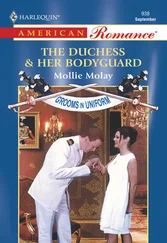Hugh Walpole - The Duchess of Wrexe, Her Decline and Death
Здесь есть возможность читать онлайн «Hugh Walpole - The Duchess of Wrexe, Her Decline and Death» — ознакомительный отрывок электронной книги совершенно бесплатно, а после прочтения отрывка купить полную версию. В некоторых случаях можно слушать аудио, скачать через торрент в формате fb2 и присутствует краткое содержание. Жанр: foreign_prose, История, foreign_edu, foreign_antique, на английском языке. Описание произведения, (предисловие) а так же отзывы посетителей доступны на портале библиотеки ЛибКат.
- Название:The Duchess of Wrexe, Her Decline and Death
- Автор:
- Жанр:
- Год:неизвестен
- ISBN:нет данных
- Рейтинг книги:5 / 5. Голосов: 1
-
Избранное:Добавить в избранное
- Отзывы:
-
Ваша оценка:
- 100
- 1
- 2
- 3
- 4
- 5
The Duchess of Wrexe, Her Decline and Death: краткое содержание, описание и аннотация
Предлагаем к чтению аннотацию, описание, краткое содержание или предисловие (зависит от того, что написал сам автор книги «The Duchess of Wrexe, Her Decline and Death»). Если вы не нашли необходимую информацию о книге — напишите в комментариях, мы постараемся отыскать её.
The Duchess of Wrexe, Her Decline and Death — читать онлайн ознакомительный отрывок
Ниже представлен текст книги, разбитый по страницам. Система сохранения места последней прочитанной страницы, позволяет с удобством читать онлайн бесплатно книгу «The Duchess of Wrexe, Her Decline and Death», без необходимости каждый раз заново искать на чём Вы остановились. Поставьте закладку, и сможете в любой момент перейти на страницу, на которой закончили чтение.
Интервал:
Закладка:
Nevertheless she would not speak to him again and they went back to the box. She would not speak to Lady Carloes nor to her uncle.
Then as the loveliest music in all opera flooded the building her anger began to melt.
He had looked so charmingly repentant and, after all, the Meistersinger was long for anyone who did not really care for music—and then they all did talk. It was only in the gallery that one found the proper reverence.
Her anger cooled and then descended upon her the quintet, and she was once again swept, in her cage, to the stars.
Now she and all live things seemed to be opening their hearts together to God—no shame now to speak of one's deepest and most sacred thoughts. No fear now of God nor the Archangels nor all the long spaces of Immortality. The cage had ascended to the highest of all the Heavens, and there, for a moment, one might stand, worshipping, with bowed head.
The quintet ceased and Rachel felt that she could never be angry with anyone again. She wished to tell him so.
At last, the revels were over, the "Prieslied" had won its praises, Sachs had been acclaimed by his world, and they were all in the lobby, waiting for carriages, talking, laughing, hurrying to the restaurants.
Her face was lighted now with happiness. She touched his arm.
"I didn't mean to be angry—like that. It was silly and rude of me. Forgive me, please–"
He turned, stuttering. "Forgive you!" He took her hand—"I ought to have been shot—Yes, I'll never forgive myself. You—you–" And then he could say no more, but suddenly, raising his hat, bolted away.
As the door swung behind him Lady Carloes turned a perplexed face—
"Why! he said good night! And now I shall never find–"
But Lord John appeared just then and all was well.
Going back, in the dark brougham, Rachel put her head on her uncle's shoulder and, exhausted with excitement and happiness and something more than either of them, cried her eyes away.
CHAPTER X
LIZZIE AND BRETON
"What of Adam cast out of Eden?
(And O the Bower and the hour!)
Lo! with care like a shadow shaken
He kills the hard earth whence he was taken."
I
To the ordinary observer Lizzie Rand was, during that hot July, as she had ever been.
The servants in 104 Portland Place could detect no change, but then they did not search for one, having long regarded Miss Rand as a piece of machinery, symbolized by that broad shining belt of hers, happily calculated to fit, precisely, the duties for which it was required.
But Miss Rand herself knew that there was a sharp, accurate, shrewd piece of machinery named Miss Rand, and a breathing, emotional, uncertain human being called Lizzie. There had always been those two, but since the inadequacy of her mother and sister had been confronted with the stern necessity of making two ends meet, Miss Rand had been in constant demand and Lizzie had only, by her occasional obtrusion, made life complicated and disturbing.
Miss Rand had told herself that Lizzie was now almost an anachronism, that the emotions in life that aroused her were bad cheap emotions, and that this was an age that demanded increasingly of women a hard practical efficiency without sentiments or enthusiasms.
These forcible arguments had for a time kept Lizzie in a darkened background; it was some years since Miss Rand had been disturbed. But now in the warm weather of 1898 Lizzie had not only reappeared, but had leapt, an insistent, shining presence, into urgent life. Miss Rand faced her—what had created her? A little, the weather, the beauty of those brazen days—A little, Rachel's coming out into the world, an adventure that had stirred the whole house into a new and sympathetic excitement—a little, these things. But chiefly, and no pretence nor shame could conceal the fact, did this new Lizzie owe her creation to the appearance of Francis Breton.
Lizzie Rand had had, from her birth, a romantic heart; she had had also a prosaic practical exterior, and a mind as hard and clear, if necessary, as her own most lucent typewriter.
The romantic heart had, throughout these years, been there, and now this romantic, scandalous, youthful, engaging unfortunate had called it out.
She was never so warmly attracted as by someone lacking, most obviously, in those qualities with which she herself abounded. That people should be foolish, impetuous, careless, haphazard commended them straight to her keeping. "Poor dears" had their instant claim upon her. Her mother and sister were "poor dears" and she had suffered from them now during many years. Francis Breton was most assuredly a "poor dear!"
Here the Duchess a little flung her shadow and confused the mind. Although Lizzie had never seen that splendid figure she was, nevertheless, acutely conscious of her. She was conscious of her through her own imagination, through her mother, finally through Lady Adela.
Her imagination painted the old lady, the room, the furniture fantastic, strangely coloured, always with dramatic effect. Her picture was never precisely defined, but in its very vagueness lay its terrors and its omens.
Miss Rand, the most practical and collected of young women, could never pass the Duchess's door without a "creep."
Through her mother the Duchess came to her as the head of society. Society had never troubled Lizzie's visions of Life. She had, in her years with the Beaminsters, seen it pass before her with all its comedy and pathos, and the figures that had been concerned in that procession had seemed to her exactly like the figures in any other procession except that they were dressed for their especial "subject." But oddly enough when, through her own observation, this life, seen accurately at first hand, amounted only to any other life, seen through the eyes of her mother, it achieved another size.
She knew that her mother was a foolish woman, that her mother's opinions on life were absurd and untrue, and yet that dim, great figure that the Duchess assumed in her mother's eyes, in some odd way impressed her.
Lastly, and most strikingly of all, came Lady Adela's conception to her. Lady Adela was in terror of her mother; everyone knew it, friends, relations, servants. Lizzie herself saw it in a thousand different ways—saw it when Lady Adela spoke of her, saw it in the way that Lady Adela addressed Dorchester when that grim woman was interviewed by her, saw it when Lady Adela was suddenly summoned to that room upstairs.
Lizzie, during the hours when she was writing from Lady Adela's dictation or working with her, found her dry, stupid, sometimes kind, never emotional. It was to her, therefore, the most convincing proof of the Duchess's power, this emotion, this alarm drawn from so dry a heart.
Now the influence that the Duchess had upon Lizzie was always a confused one. Persuasion from this source followed lines of reasoning that were false and led to some conclusions that were muddled and untrue.
Through such minds as her mother's and Lady Adela's no clear truth could come, and yet it was through such minds as these that the Duchess's influence descended upon Lizzie.
It descended now with regard to Francis Breton. It told Lizzie that Breton had been proved by society to be a scoundrel, that he should be no worthy man's friend, that he belonged to that world, the world of shadows and past misadventures, that no proper soul might, with honesty, investigate.
This was what the Duchess told to Lizzie and perhaps by so doing increased her sympathy with the sinner.
II
It must not be supposed that Mrs. Rand had not, at first, been unsettled by scruples.
The fact that Breton was, in the eyes of the Beaminster family, a ne'er-do-well who had brought disgrace upon the family name had, for a time, distressed her, but the romantic hope of being herself the agent of his restoration to his grandmother, and the delightful manners of the scoundrel when he appeared, killed her alarm. Mrs. Rand's mind was a dark misty place except when the candles of romance were lit; when they flamed, blown by the wind though they might be, there was, around the candlesticks at any rate, a real and even splendid blaze.
Читать дальшеИнтервал:
Закладка:
Похожие книги на «The Duchess of Wrexe, Her Decline and Death»
Представляем Вашему вниманию похожие книги на «The Duchess of Wrexe, Her Decline and Death» списком для выбора. Мы отобрали схожую по названию и смыслу литературу в надежде предоставить читателям больше вариантов отыскать новые, интересные, ещё непрочитанные произведения.
Обсуждение, отзывы о книге «The Duchess of Wrexe, Her Decline and Death» и просто собственные мнения читателей. Оставьте ваши комментарии, напишите, что Вы думаете о произведении, его смысле или главных героях. Укажите что конкретно понравилось, а что нет, и почему Вы так считаете.












